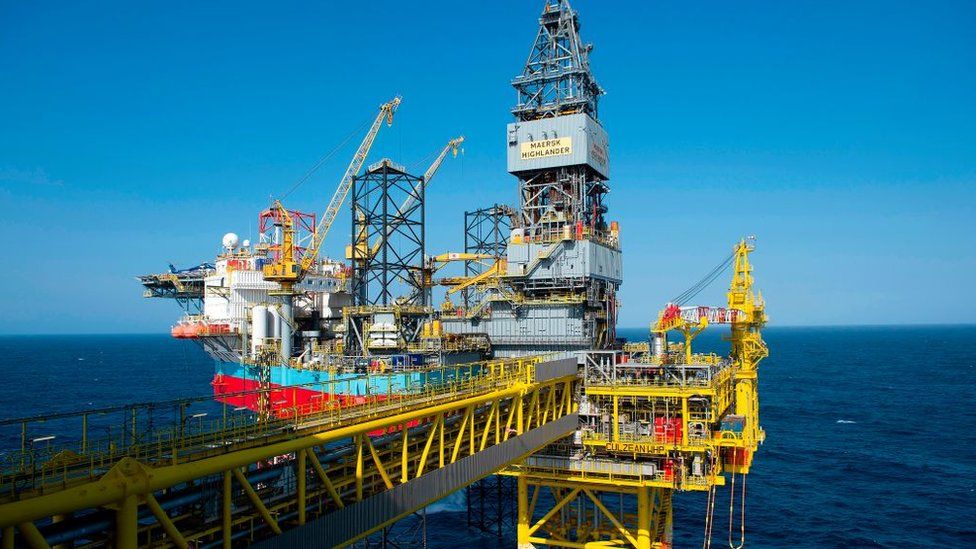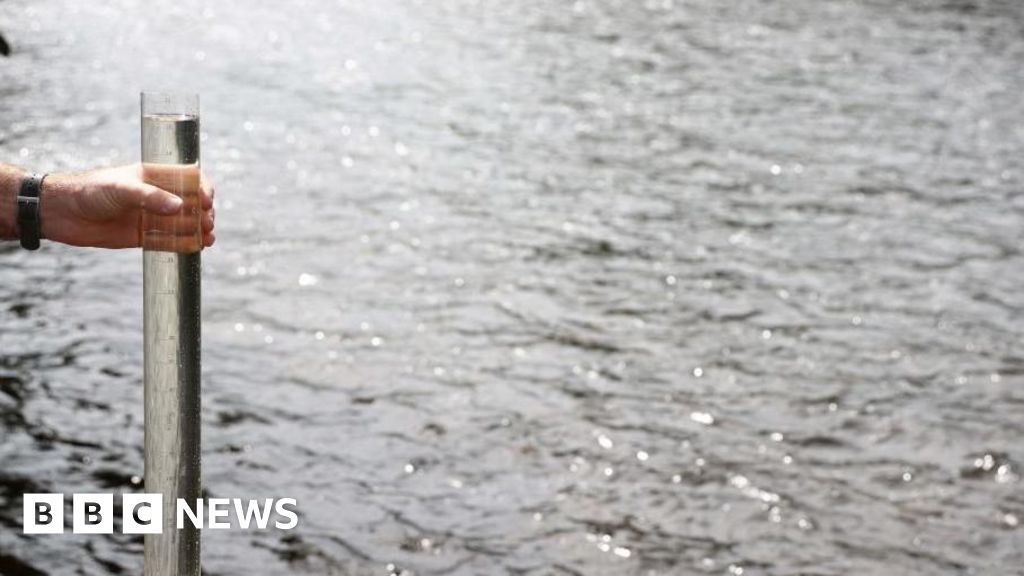ARTICLE AD BOX
 Image source, Getty Images
Image source, Getty Images
Energy companies claim the windfall tax harms investment on the North Sea
The windfall tax on oil and gas firms has been extended by 12 months in Jeremy Hunt's Budget despite opposition from the Scottish Conservatives.
The 35% surcharge on profits due to high energy prices had been scheduled to end in March 2028.
Scottish Conservative leader Douglas Ross said he will not support the legislation needed to pass the extension.
He also urged the chancellor to reconsider the decision.
The Energy Profits Levy (EPL) was introduced by Rishi Sunak when he was chancellor in May 2022 as a way of funding help for households facing rising bills as energy prices soared following Russia's invasion of Ukraine.
It was then extended and raised to 35% by Jeremy Hunt last November, taking the overall tax burden faced by UK oil and gas producers to about 75%.
Delivering his budget, Mr Hunt said: "Because the increase in energy prices caused by the Ukraine war is expected to last longer, so too will the sector's windfall profits - so I will extend the sunset on the Energy Profits Levy for an additional year to 2029, raising £1.5bn."
He said he would also encourage investment in the North Sea by retaining "generous investment allowances".
Image source, PA Media
Image caption,Scottish Conservative leader Douglas Ross had lobbied against extending the windfall tax
Mr Ross said he supported the "many positive measures" in the budget, such as the 2p cut in national insurance.
"However, while I accept the chancellor had some tough decisions to make, I'm deeply disappointed by his decision to extend the windfall tax for a further year.," he said.
"The SNP and Labour have abandoned 100,000 Scottish workers by calling for the taps in the North Sea to be turned off now.
"Although the UK government rightly oppose this reckless policy - and have granted new licences for continued production in the North Sea - the budget announcement is a step in the wrong direction.
"As such, I will not vote for the separate legislation needed to pass the windfall tax extension and will continue to urge the Chancellor to reconsider".
On Tuesday, Mr Ross told BBC Scotland's Podlitical he had lobbied both the chancellor and the prime minister not to further extend the windfall tax.
He said: "I've said it privately to the chancellor, to the prime minister, to senior ministers and I'm saying it publicly. I'm not trying to in any way run away from this.
"What we need for oil and gas companies is certainty going forward. A further extension doesn't provide that certainty."
The chancellor's announcement came just hours before the Scottish Conservatives were due to hold a debate in the Scottish Parliament condemning other parties for their "reckless assault" on the oil and gas industry.
This is awkward for the Scottish Conservatives.
The North East of Scotland is an area where they're banking on having some success in the upcoming general election. And they hoped that opposing tax measures hitting the oil and gas industry would help with that.
Moreover, Douglas Ross had made clear publicly that he'd been lobbying the chancellor on this very issue.
The Scottish Conservatives will now worry that this could dampen enthusiasm for the party in a key target region.
And on top of that, what does this say about their leader's ability to influence the top levels of the UK party? He went public with his pleas. They fell on deaf ears.
And to top it off, the Scottish Conservatives at Holyrood will debate their own motion this afternoon which warns of the economic harms of…extending the windfall tax. You couldn't make it up.
You suspect they may not have lodged that motion on Monday if they'd know what the chancellor was about to do.
It looks like the Scottish Conservatives plan to tough this out: they're going to make clear they disagree with this particular budget measure.
But some will be feeling ignored by the UK party this afternoon.
Aberdeen & Grampian Chamber of Commerce also criticised the decision, calling it the "fourth Tory tax raid on the North Sea in two years" and predicting the levy will make the sector more uncertain.
Policy director Ryan Crighton said: "We need investment in new North Sea oil and gas fields to maintain jobs and offset declining production. Without that investment, production could halve by 2030, which places thousands - perhaps tens of thousands - of jobs at risk.
"We are already seeing investors walking away from deals - with some showing open dissent towards the UK - and if that gathers pace, then the 1,000 jobs we have already lost to the windfall tax could be a drop in the ocean compared to what is to come.
"If we wind down oil and gas production before jobs are available at scale in renewables, then we lose the world class expertise built up over 50 years and Aberdeen will pay the price".
A windfall tax is used to target firms which benefit from something for which they were not responsible.
Labour has proposed increasing it to 38%, taking the overall tax rate to 78%, while the SNP wants it maintained at the current level.
Rising demand for energy after Covid restrictions were lifted and Russia's invasion of Ukraine in 2022 resulted in soaring prices, although they have since fallen back.
The Treasury has promised to scrap the tax if prices fall to normal levels for a sustained period, which would see the tax rate on energy firms fall to 40% .

 1 year ago
27
1 year ago
27








 English (US) ·
English (US) ·